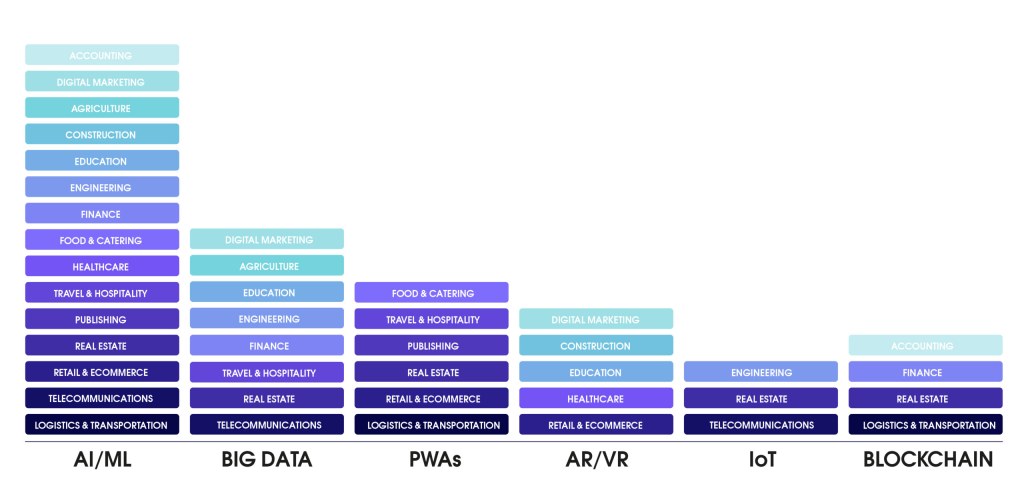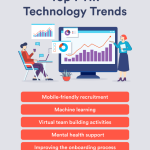Unveiling The Ultimate Guide To The Latest Technology Trends In Software Engineering: Embrace The Future!
Latest Technology Trends in Software Engineering
Introduction
Hello Readers,
2 Picture Gallery: Unveiling The Ultimate Guide To The Latest Technology Trends In Software Engineering: Embrace The Future!


Welcome to this article on the latest technology trends in software engineering. In today’s rapidly evolving world, technology plays a crucial role in shaping various industries, and software engineering is no exception. As new advancements emerge, it is important for software engineers to stay updated with the latest trends to remain competitive in the market.

Image Source: zibtek.com
In this article, we will explore the top technology trends in software engineering, their implications, advantages, and disadvantages. Whether you are a software engineer looking to expand your knowledge or someone interested in the field, this article will provide valuable insights into the latest developments.
Without further ado, let’s delve into the fascinating world of software engineering!
1. Artificial Intelligence and Machine Learning
Artificial Intelligence (AI) and Machine Learning (ML) have gained significant attention in recent years. These technologies empower software engineers to create intelligent systems that can learn and adapt from data. AI and ML algorithms are used in various applications, such as natural language processing, computer vision, and predictive analysis.

Image Source: softwareplanetgroup.co.uk
🔍 AI and ML advancements have revolutionized industries, including healthcare, finance, and manufacturing, by automating processes, improving decision-making, and enhancing overall efficiency.
2. Internet of Things (IoT)
The Internet of Things (IoT) refers to the network of interconnected devices that can collect and exchange data. Software engineers play a crucial role in developing the software infrastructure required to connect, manage, and analyze data from these devices. IoT applications range from smart homes and wearable devices to industrial automation systems.
🌐 IoT enables the automation of various tasks, improves productivity, and enhances user experiences by seamlessly integrating devices and technologies.
3. Cloud Computing
Cloud computing has transformed the way software engineers develop, deploy, and maintain applications. By utilizing remote servers and virtualization technologies, cloud computing provides scalable and cost-effective solutions for storage, processing, and data management. Popular cloud platforms, such as Amazon Web Services (AWS) and Microsoft Azure, have revolutionized the software engineering landscape.
☁️ Cloud computing offers numerous benefits, including increased flexibility, reduced infrastructure costs, and improved collaboration among developers.
4. DevOps
DevOps is a software development approach that emphasizes collaboration and integration between software development and operations teams. It aims to streamline the development process, reduce deployment time, and improve software quality. DevOps practices involve continuous integration, continuous delivery, and automated testing.
⚙️ Adopting DevOps methodologies enables software engineers to deliver high-quality software faster and with fewer errors.
5. Blockchain Technology
Blockchain technology, originally designed for cryptocurrencies like Bitcoin, has found applications beyond financial transactions. It is a decentralized and transparent system that enables secure and tamper-proof data storage and transactions. Software engineers are exploring blockchain for various applications, such as supply chain management, healthcare data management, and digital identity verification.
🔒 Blockchain technology enhances data security, eliminates the need for intermediaries, and enables trust in peer-to-peer interactions.
6. Augmented Reality (AR) and Virtual Reality (VR)
Augmented Reality (AR) and Virtual Reality (VR) technologies have gained significant popularity in recent years. AR enhances the real world by overlaying digital information, while VR creates a completely immersive virtual environment. These technologies have applications in various industries, including gaming, education, and training.
👓 AR and VR provide unique user experiences, revolutionizing the way we interact with digital content and enhancing simulations and training scenarios.
7. Cybersecurity
With the increasing dependence on technology, cybersecurity has become a critical concern. Software engineers are constantly working on developing robust security measures to protect sensitive data from cyber threats and attacks. This includes implementing encryption techniques, intrusion detection systems, and secure coding practices.
🛡️ Cybersecurity measures are crucial to safeguarding personal information, financial data, and critical infrastructure from unauthorized access and potential breaches.
Conclusion
In conclusion, the latest technology trends in software engineering are reshaping the industry and opening new opportunities for software engineers. From artificial intelligence and machine learning to blockchain technology and cybersecurity, staying updated with these trends is essential for professional growth.
By embracing these advancements, software engineers can develop innovative solutions, improve efficiency, and create impactful applications. It is an exciting time for software engineering, and the future holds even more possibilities.
So, what are you waiting for? Dive into these trends, explore new technologies, and be at the forefront of software engineering innovation!
Final Remarks
Disclaimer: The information provided in this article is for educational purposes only. The views and opinions expressed are those of the author and do not necessarily reflect the official policy or position of any organization.
Thank you for taking the time to read this article. We hope you found it informative and insightful. If you have any further questions or would like to share your thoughts, please feel free to reach out.
This post topic: Latest Technology Trends


